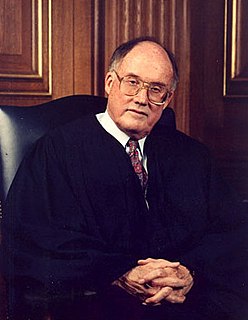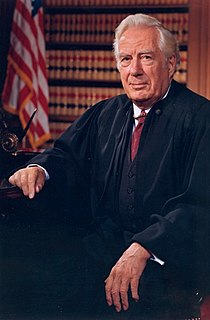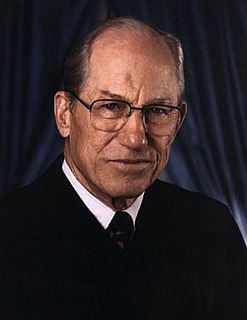A Quote by Potter Stewart
I think that the Court's task, in this as in all areas of constitutional adjudication, is not responsibly aided by the uncritical invocation of metaphors like the ' wall of separation,' a phrase nowhere to be found in the Constitution.
Related Quotes
Ultimately, the court is heading to a doctrine of 'separation of campaign and state.' This doctrine, like separation of church and state or separation of military and civilian authority, is not explicit in the Constitution but flows naturally from its structure and commitment to freedom and democracy.
It is impossible to build sound constitutional doctrine upon a mistaken understanding of Constitutional history... The establishment clause has been expressly freighted with Jefferson's misleading metaphor for nearly forty years... There is simply no historical foundation for the proposition that the framers intended to build a wall of separation... The recent court decisions are in no way based on either the language or intent of the framers.
Of course, such judicial misconstruction theoretically can be cured by constitutional amendment. But the period of gestation of a constitutional amendment, or of any law reform, is reckoned in decades usually; in years, at least. And, after all, as the Court itself asserted in overruling the minimum-wage cases, it may not be the Constitution that was at fault.
The veto is a President's Constitutional right, given to him by the drafters of the Constitution because they wanted it as a checkagainst irresponsible Congressional action. The veto forces Congress to take another look at legislation that has been passed. I think this is a responsible tool for a president of the United States, and I have sought to use it responsibly.
The Court is most vulnerable and comes nearest to illegitimacy when it deals with judge-made constitutional law having little or no cognizable roots in the language or design of the Constitution.... There should be, therefore, great resistance to ... redefining the category of rights deemed to be fundamental. Otherwise, the Judiciary necessarily takes to itself further authority to govern the country without express constitutional authority.
































